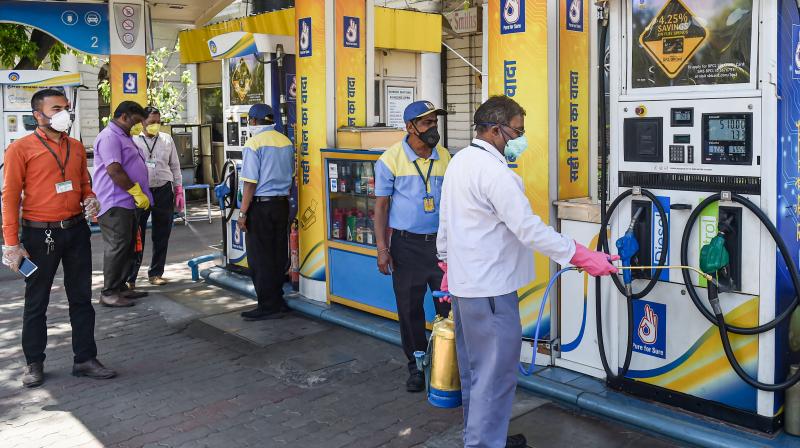Life in India is into hard times. The COVID-19 is adding a lethal punch to the already difficult economic difficulties to people across the board. What comes as an added shock is the wayward manner in which fuel prices are hiked – an indulgence of a kind which saw the price going up eight times in the past nine days. Oil marketing companies (OMCs) have been given a free hand, with tacit government support and the intent is very clear.
Fuel price hike came both during and after a season when world oil prices have been falling. The reserves in production centers have been swelling due to massive halt in public activities across the globe, resulting in production being controlled and decreased. The present hike, however, may or may not be linked to a marginal rise in crude prices in world market. One may wonder as to why the nation must have a hand-to-mouth existence in oil stocks and why it has failed to take steps to facilitate more purchases. It has also not been able to ensure sufficient reserve stock as several other countries are doing. A sudden fluctuation in international market should not be justification enough for multiple hikes in retail prices over a span of less than ten days. Worse, even when global oil prices were falling, India kept raising prices in the domestic retail market.
India has less of oil production and it depends mostly on imports. The steady and frequent increase in fuel prices is having both direct and indirect impact on human life. On one side, vehicle users will have to keep shelling out more even as they limit their use of vehicles in COVID times. Every fuel price hike means an increase in the transportation cost for all items of daily use, including medicines. In totality, every such hike turns out to be a double whammy for the ordinary citizen in a nation where a two-wheeler is the minimum that most possess – both urban and rural dwellers. These vehicles are the essential tools required by them to go to work and earn a living for the family.
A report from Buenos Aires is educative. The government of Argentina allowed the country’s main refiner to hike diesel and gas pump prices by 4.5 per cent this past week, it being the first increase in retail prices in a matter of nine months. Nations like the UK and South Africa have one-time correction in prices every month. Price hike of six times a week, as has been happening in India, is unheard of globally and is proof of the lack of effective leadership at governmental level, where any ham-handed measure seems fine.
In other words, the government is taking advantage of a scenario caused by the COVID spread which made forms of mass protests unlawful. Reason also why fuel prices were increased 22 times in three weeks’ time in the month of June, in what has by now become a norm rather than an exception. June also saw fuel prices having been hiked on a daily basis for 11 days at a stretch.
March was also the time when the government raised excise duty on petrol and diesel to raise funds for the exchequer. This too ultimately hurt the people. Global oil prices fell sharply in April due to a major glut in supply and lack of storage space. India too has serious problems in terms of poor storage facilities and this is among the factors forcing the nation to not do bulk purchases and storage on a long-term basis when the prices remain low. In terms of cash component for purchases, India, by not being able to store oil, is losing precious foreign exchange.
Nothing, however, justifies a daily dose of price hike. It shows the wantonness with which those at the helm handle matters. The ‘trick’ is also to fool the people. A one-time rise in prices even on a monthly basis might be acceptable, but the daily dose is a way to make a big cut in installments so that the people would not feel the pain in one go. But, this is a ridiculous way forward. The silence of the citizens may unnerve some. Reality, however, is that Indians bear too much but never forget when their stomach is hit.
